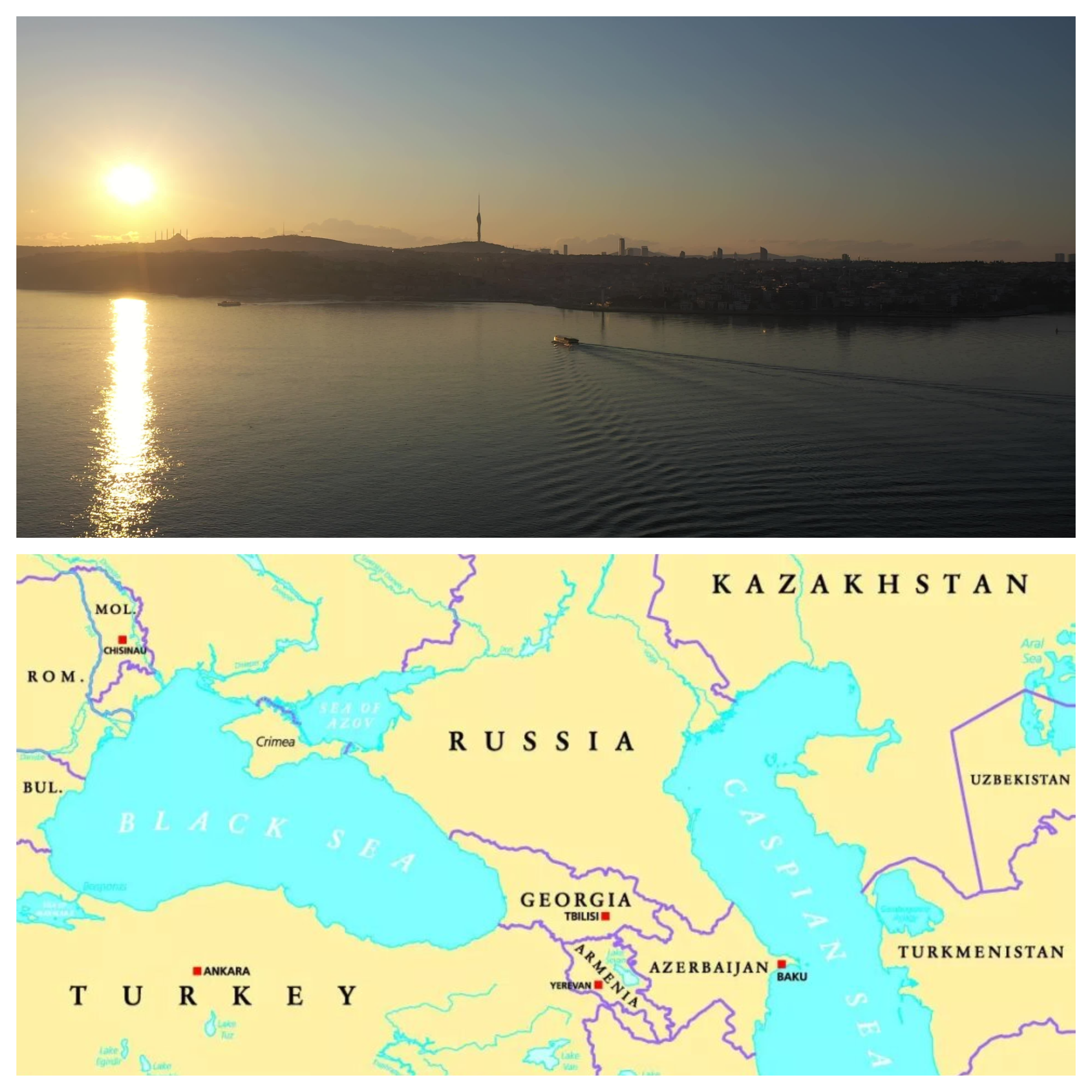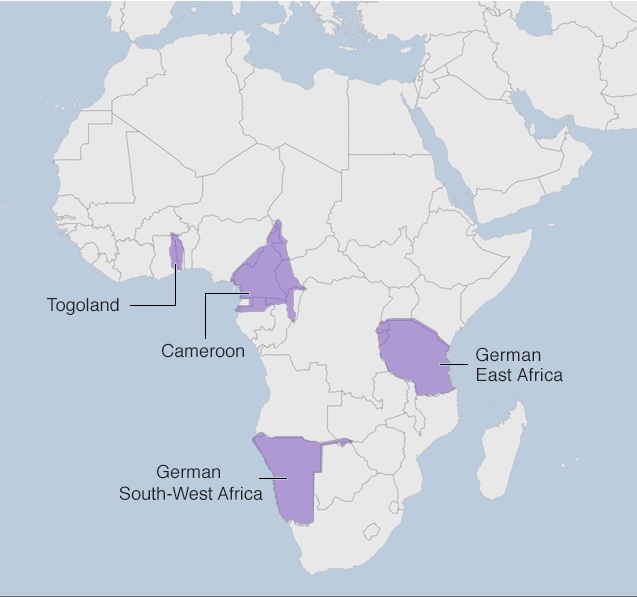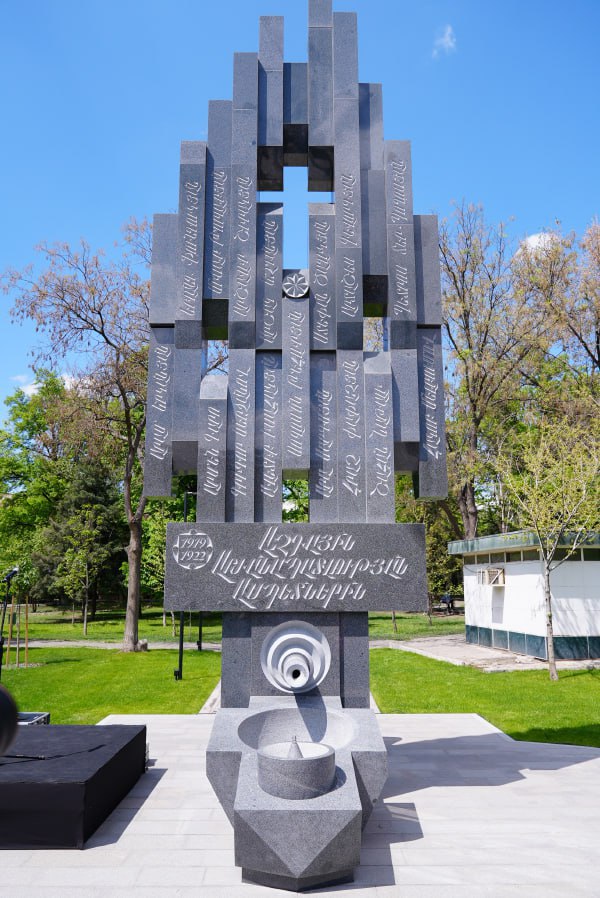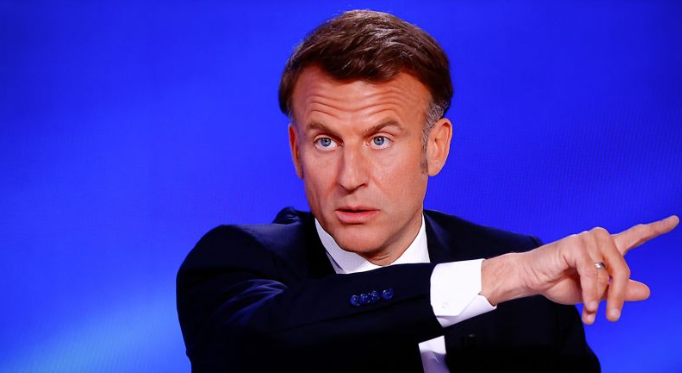
This is the English translation of a Turkish language article that was originally published by AVİM on 28 March 2023. AVİM Scholar in Residence İrem Akın contributed to the translation of this article.
On 17 March 2023, the International Criminal Court (ICC) issued arrest warrants against Russian President Vladimir Putin and Russian Commissioner for Children’s Rights Maria Alekseyevna Lvova-Belova, alleging that there is strong evidence of abduction and/or forced migration of Ukrainian children from Russian-controlled Ukrainian territories to Russia and the perpetration of war crimes in this context. The arrest warrant was received positively and seen as an important step towards the fulfillment of justice, especially in Western countries. Although Russia's armed intervention in Ukraine is in clear violation of international law and there are allegations and evidence that both sides are committing war crimes and crimes against humanity during this conflict, it is our assessment that this arrest warrant is exceedingly problematic both in the political and legal sense.
When evaluated from a legal standpoint, the tension between the immunity of heads of state from the jurisdiction of foreign judicial bodies (which is a well-established principle of customary international law) and one of the ICC's founding purposes of prosecuting even the highest ranking state officials if they commit one of the core crimes (namely genocide, crimes against humanity, war crimes and the crime of aggression) constitutes the main legal issue.
All attempts to prosecute high-level state officials for the equally grave crimes allegedly committed by some Western states in Iraq and Afghanistan, including former US President George W. Bush and former British Prime Minister Tony Blair, before the ICC have been stalled. However, in the past few months, following the appointment of British Karim A.A. Khan as chief prosecutor, it has been reported that state officials of China, which is not a member of the ICC, are being investigated for acts against the Uyghurs.[1] Meanwhile, the allegation that the legitimate international operations carried out by non-member Türkiye against FETÖ and PKK/PYD members constitute crimes against humanity has been forwarded to the ICC Prosecutor's Office by some Belgian 'civil society' organizations, and the news of this was shared to give the impression that the said allegation should taken seriously.[2] This was finally followed by the arrest warrant issued against Putin. From the political standpoint, all of these lead to the inevitable criticism that the ICC is simply a new manifestation of 'selective justice' or 'Western justice'.
In light of these developments, the danger of the ICC, which was established with high hopes as a result of a series of initiatives spanning a century, turning into a weapon of law (mainly pointed at the world outside the 'Free West') within 20 years of its establishment has never been more concrete.
The Emergence, Exercise, and Effects of the ICC's Jurisdiction
The Rome Statute establishing the ICC clearly defines the limits of the Court's jurisdiction. In terms of substantive law, the Court's jurisdiction is limited to core crimes, meaning it has no jurisdiction to prosecute other than these crimes. In terms of persons, the Court cannot impose any criminal or civil liability on states as it is specifically designed to try individuals. The Court's jurisdiction may arise in three circumstances. Jurisdiction may arise (i) when the alleged crime is committed within the borders of a member state, (ii) when the alleged crime is committed by a citizen of a member state, or finally (iii) when the ICC is authorized by the United Nations Security Council (UNSC) to conduct an investigation into a situation. In the case of authorization by the UNSC, as was in the case of Sudan, the ICC's jurisdiction may arise even in relation to crimes committed on the borders of a non-member state or by its nationals.
The Court is complementary and only comes into play when national legal systems are incapable of prosecuting the crimes concerned or do not make a genuine effort to prosecute such crimes. Jurisdiction over the arrest warrant issued against Putin arose in relation to acts that took place on Ukrainian territory, in the context of Ukraine's recognition of the ICC's jurisdiction as of 21 November 2013. In this respect, the fact that Russia is not a member state has no impact. However, the ICC will only be able to prosecute acts committed within Ukraine. It is possible to associate Putin with the acts alleged to have taken place in the field within the scope of Article 28 of the ICC Statute, which states that superiors with effective authority and control can be held liable either by practice or omission for acts committed by their subordinates.
How Easy Is It to Arrest a Sitting President? Has Such a Decision Been Made Before and What Are the Limits of this Decision?
The warrant of arrest is regulated in the Article 58 of the Statute of the International Court of Justice, according to which the Pre-Trial Chamber shall, on the application of the Prosecutor, issue a warrant of arrest of a person if it is determined that there are reasonable grounds to believe that the person has committed a crime within the jurisdiction of the Court, and the arrest of the person appears necessary to ensure the person's appearance at trial, for the competence of judicial activities, or to prevent the person from continuing to perpetuate that crime. On the other hand, Article 27(2) of the Statute provides that legal immunities granted by national or international law shall not bar the Court from exercising its jurisdiction over such a person. The arrest warrant for Putin was issued based on these two provisions.
This decision is not a first in the ICC proceedings. Previously, an arrest warrant was issued for former Libyan leader Muammar Gaddafi in 2011, but he was killed by rebels a few months after the warrant was issued. On the other hand, the arrest warrant of 2009 issued against former Sudanese President Omar al-Bashir was the first of its kind issued by the court against a sitting Head of State, and the inability (or unwillingness) of the member states, South Africa and Jordan, to enforce the warrant during al-Bashir's visits caused a great deal of controversy. Although there have been reports that al-Bashir, whose presidency ended after the coup in Sudan, will be handed over to the ICC, this handover has not yet taken place.
At this point, while it may be possible to argue that the ICC's issuance of an arrest warrant against a sitting Head of State is a possible measure when the conditions are met, it is obvious that it is quite difficult to physically carry out such an arrest. Because the ICC does not have its own enforcement apparatus, the implementation of its decisions depends on the cooperation of the member states. As per the ICC Statute, each of the 123 member states is obliged to implement the decisions taken by the Court. Therefore, it can be argued that it will not be possible for Putin to visit countries other than non-member states such as Türkiye, the US, and China after this decision. This is because all member states are obliged to arrest Putin as soon as the warrant is issued. However, the fact that al-Bashir has never been arrested indicates how difficult this situation is in practice.
The legal problem at this point is the contradiction between the principle of the head of state immunity and Article 27 of the ICC. This issue came to the forefront in the legal debates and the relevant decisions of the ICC, especially after Jordan, as a member state of the ICC, refrained from arresting Al-Bashir in accordance with the principle of immunity. The ICC’s First Instance Chamber stated that Jordan did not fulfill its obligation by not arresting Al-Bashir because the UNSC resolution abrogated the privilege of immunity.
On the other hand, in upholding the judgment, the Appeals Chamber altered the reasoning and argued that the claim of immunity before international tribunals cannot be asserted in the context of customary international law. This reasoning also referred to Paragraph 61 of the judgment of the Arrest Warrant of 2002 of the International Court of Justice, in which the Court held that 'The immunities (...) do not represent a bar to criminal prosecution in certain circumstances.'.
However, the ICC’s decision was heavily and rightfully criticized by many leading international lawyers such as Dov Jacobs, Claus Kress, Ben Batros, and Dapo Akande.[3] First of all, it is not possible to speak of such an established customary rule. Moreover, the inability of a person to assert the immunity card before the ICC and immunity in the context of an equal sovereign state detaining the president of another state are two separate issues. The ICC has confused these two elements in its relevant decision. With its relevant decision, the ICC has also, in essence, planted explosives on the foundations of the Court's principles that the established international legal system is consensual and based on the principle of sovereign equality.
Can Putin Be Arrested? What Does International Law Say about the Arrest Warrant?
Many scholars in the Western academic community and Western government officials are in a race to prove that the decision to arrest Putin is in accordance with international law. The official and academic propaganda of the United States, especially as a state that has explicitly avoided becoming a member of the ICC due to its distance and distrust of international judicial bodies, constitutes (to put it mildly) a disturbing contrast. However, neither these attempts, the clear illegality of Russia's intervention, nor the crimes committed can make this arrest legal within the current international legal system. Unlike al-Bashir, there is no UNSC resolution against Putin. As Kevin Jon Heller, special advisor to the ICC Prosecutor and a leading international criminal lawyer, and the Chinese Ministry of Foreign Affairs reminded us, ICC membership does not abrogate the principle of respect for immunity in relations between two states. Another principle reminded by Heller is that states cannot come together to create jurisdiction over matters over which they do not have jurisdiction individually. This point is extremely important and needs to be elaborated.
States can come together and waive their rights or create rights and obligations. In this regard, all ICC member states have waived immunity under the ICC in relation concerning their heads of state. Therefore, an arrest warrant issued by the Court against the head of state of an ICC member state can be enforced by another member state. However, this situation is different for non-member states. This is because a non-member state has not waived its head of state immunity and other states do not have the right or the status to come together to authorize something that is not within their jurisdiction. Just as Türkiye and Azerbaijan cannot have the authority to arrest the US President with the court they have established through a treaty, it is clear that ICC member states cannot have such authority regarding Putin. This creates a very strange situation. On paper, the ICC has the power to issue an arrest warrant against Putin and the warrant is procedurally valid. But no member state has the power to enforce it. Putin's arrest by any ICC country would therefore be a clear violation of international law.
In the final analysis, this decision is a big gamble for the ICC and four possibilities emerge. The first is that there is a fundamental change of government in Russia and Putin is handed over to the ICC by Russia. Even if such a change were to take place, such a surrender of a former head of state has no place in Russian state culture. Therefore, this possibility, which is the most positive for ICM, seems remote. The second possibility is that Putin is arrested by an ICC member state to which he travels and handed over to the ICC. Beyond the illegality described above, I leave it to the reader's judgement whether, politically speaking, there is a state that could take such an action against the head of state of a nuclear great power. The third possibility is that the crisis prolongs and Putin refrains from traveling to ICC countries, and one day the case is closed upon his death. The last possibility is that the warrant is withdrawn under pressure as a result of the political resolution of the Ukraine crisis, or -even worse- the political conjuncture changes and Russia improves its relations with the ICC member states, leading to the ICC warrant not being enforced by its members and Putin visiting these states freely. This last possibility will completely destroy the already shaky credibility and effectiveness of the ICC.
[1] “The case against China at the ICC”, Eurasianet, August 12, 2022, https://eurasianet.org/the-case-against-china-at-the-icc
[2] Julian Borger, “ICC asked to investigate Turkish government over persecution of opponents around the world”, The Guardian, March 1, 2023, https://www.theguardian.com/world/2023/mar/01/icc-asked-to-investigate-turkish-government-over-persecution-of-opponents-around-the-world
[3] “You have just entered Narnia: ICC Appeals Chamber adopts the worst possible solution on immunities in the Bashir case”, Spreading the Jam, May 6, 2019, https://dovjacobs.com/2019/05/06/you-have-just-entered-narnia-icc-appeals-chamber-adopts-the-worst-possible-solution-on-immunities-in-the-bashir-case/ ; Dapo Akande, “ICC Appeals Chamber Holds that Heads of State Have No Immunity Under Customary International Law Before International Tribunals”, EJIL:Talk!, May 6, 2019, https://www.ejiltalk.org/icc-appeals-chamber-holds-that-heads-of-state-have-no-immunity-under-customary-international-law-before-international-tribunals/ ; Claus Kreß, “Preliminary Observations on the ICC Appeals Chamber’s Judgment of 6 May 2019 in the Jordan Referral re Al-Bashir Appeal”, Torkel Opsahl Academic EPublisher, Occasional Paper Series, 2019, https://www.toaep.org/ops-pdf/8-kress ; Ben Batros, “A Confusing ICC Appeals Judgment on Head-of-State Immunity”, Just Security, May 7, 2019, https://www.justsecurity.org/63962/a-confusing-icc-appeals-judgment-on-head-of-state-immunity/
© 2009-2025 Center for Eurasian Studies (AVİM) All Rights Reserved
No comments yet.
-
 AT THE CROSSROADS: TÜRKİYE AND THE BATTLE FOR BLACK SEA ORDER
AT THE CROSSROADS: TÜRKİYE AND THE BATTLE FOR BLACK SEA ORDER
Teoman Ertuğrul TULUN 21.10.2025 -
 GERMAN COLONIAL LEGACY: TANZANIA AND THE HUMBOLDT FORUM
GERMAN COLONIAL LEGACY: TANZANIA AND THE HUMBOLDT FORUM
Teoman Ertuğrul TULUN 01.02.2021 -
 THE “NEJDEHISM” REMAINS OFFICIAL IN ARMENIA
THE “NEJDEHISM” REMAINS OFFICIAL IN ARMENIA
Maxime GAUIN 30.10.2019 -
 THE ROOTS OF “NEMESIS” AND THE BACKGROUND OF RADICAL ARMENIAN NATIONALIST TERRORISM
THE ROOTS OF “NEMESIS” AND THE BACKGROUND OF RADICAL ARMENIAN NATIONALIST TERRORISM
AVİM 11.05.2023 -
 FROM SYMBOLISM TO SCRUTINY: THE TRANSFORMATION OF FRANCE'S GENOCIDE CLAIMS
FROM SYMBOLISM TO SCRUTINY: THE TRANSFORMATION OF FRANCE'S GENOCIDE CLAIMS
Teoman Ertuğrul TULUN 01.07.2025
-
25.01.2016
THE ARMENIAN QUESTION - BASIC KNOWLEDGE AND DOCUMENTATION -
12.06.2024
THE TRUTH WILL OUT -
27.03.2023
RADİKAL ERMENİ UNSURLARCA GERÇEKLEŞTİRİLEN MEZALİMLER VE VANDALİZM -
17.03.2023
PATRIOTISM PERVERTED -
23.02.2023
MEN ARE LIKE THAT -
03.02.2023
BAKÜ-TİFLİS-CEYHAN BORU HATTININ YAŞANAN TARİHİ -
16.12.2022
INTERNATIONAL SCHOLARS ON THE EVENTS OF 1915 -
07.12.2022
FAKE PHOTOS AND THE ARMENIAN PROPAGANDA -
07.12.2022
ERMENİ PROPAGANDASI VE SAHTE RESİMLER -
01.01.2022
A Letter From Japan - Strategically Mum: The Silence of the Armenians -
01.01.2022
Japonya'dan Bir Mektup - Stratejik Suskunluk: Ermenilerin Sessizliği -
03.06.2020
Anastas Mikoyan: Confessions of an Armenian Bolshevik -
08.04.2020
Sovyet Sonrası Ukrayna’da Devlet, Toplum ve Siyaset - Değişen Dinamikler, Dönüşen Kimlikler -
12.06.2018
Ermeni Sorunuyla İlgili İngiliz Belgeleri (1912-1923) - British Documents on Armenian Question (1912-1923) -
02.12.2016
Turkish-Russian Academics: A Historical Study on the Caucasus -
01.07.2016
Gürcistan'daki Müslüman Topluluklar: Azınlık Hakları, Kimlik, Siyaset -
10.03.2016
Armenian Diaspora: Diaspora, State and the Imagination of the Republic of Armenia -
24.01.2016
ERMENİ SORUNU - TEMEL BİLGİ VE BELGELER (2. BASKI)
-
AVİM Conference Hall 24.01.2023
CONFERENCE TITLED “HUNGARY’S PERSPECTIVES ON THE TURKIC WORLD"









